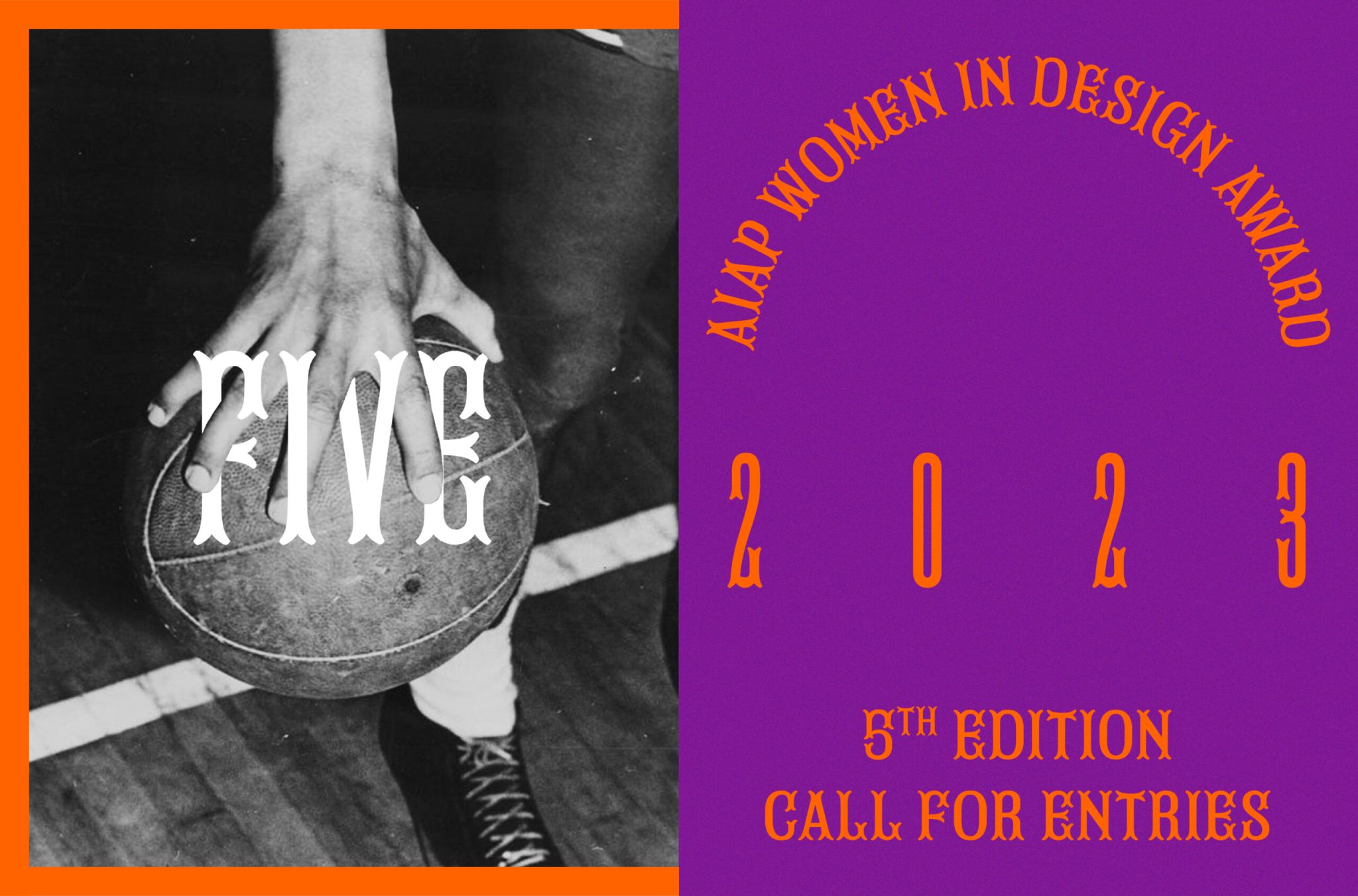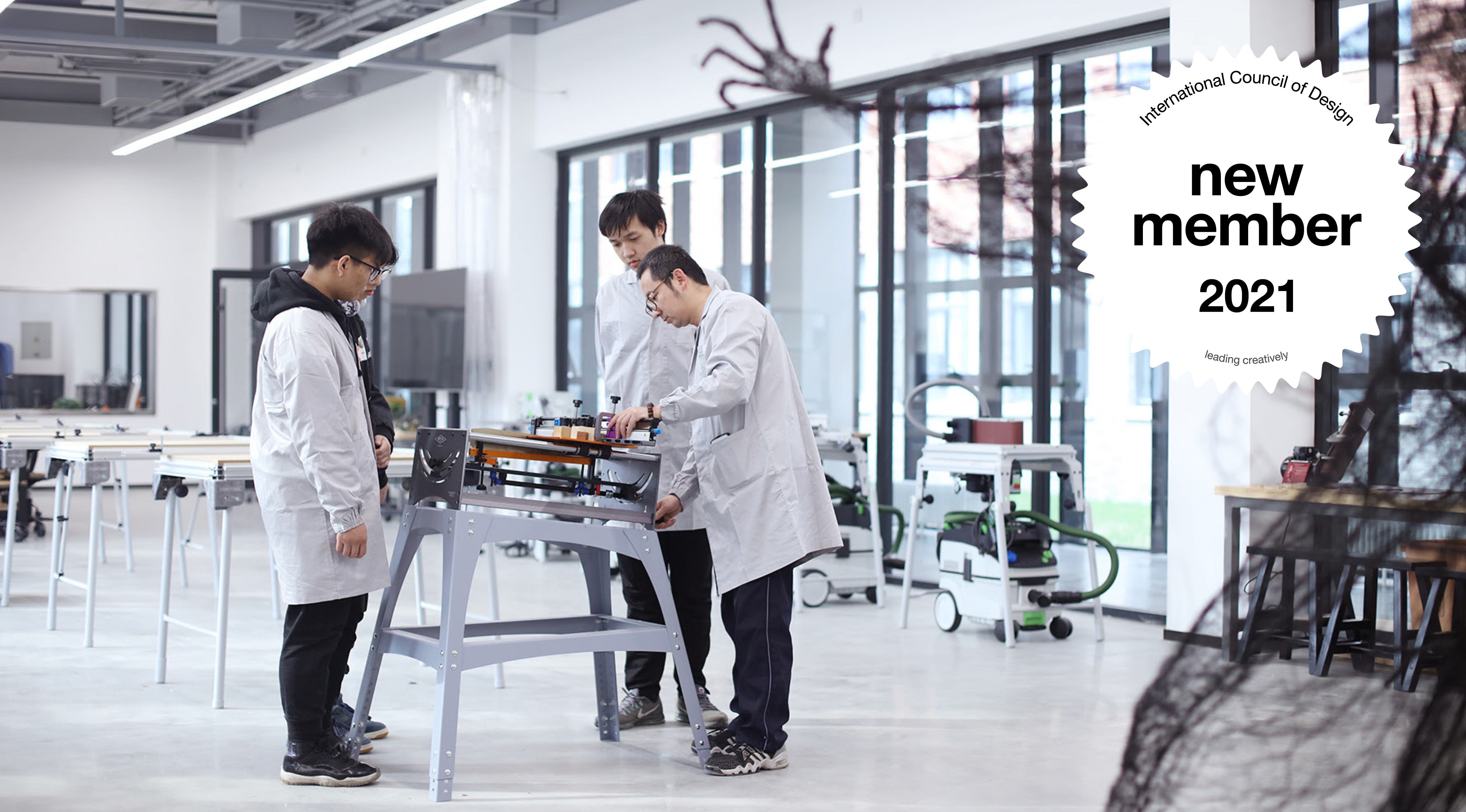EXCLUSIVE TAXI DESIGN NETWORK INTERVIEW WITH JACQUES LANGE

05.07.2006 News
Montreal (Canada) -
TAXI >> You've mentioned that, "women comprise much more than half of the international graphic design industry, yet few females ascend to national and international leadership structures." Besides fostering a culture of gender equity in the programming of Icograda Design Weeks during the 2005-2007 term, what other ways do you think can regulate the increase of active participation from women in the design industry?
Jacques Lange >> The future challenge is not to increase the number of women participating in the design industry but rather to foster their upward mobility by adjusting organisational and particularly managerial environments that are still predominantly male biased.
In mid-2005, the International Design Alliance (IDA) launched an exploratory survey entitled Women in Design, which was sponsored by the SABS Design Institute in South Africa. The survey aimed to map the activities, achievements, requirements, and challenges that confront women currently working in communication and industrial design. It measured 20 indicators covering professional practice, management roles, design promotion, and education; and attracted participation from 19 countries. The results indicated, among others, that salary disparity prevail, career opportunities are not equal, and that work/life balance requirements remain to be an obstacle for women to become upwardly mobile in the design industry. None of these highlighted results came as a surprise because it mirrors a plethora of similar studies in other industries and professions.
However, the Women in Design Report did provide Icograda with some additional and valuable insights into the gender psychographics of the profession. Since the publication of this exploratory survey, the Icograda Executive Board has used the newly gained intelligence to direct its new policy-making and programming activities in a more strategic manner, to intentionally consider the unique requirements of the industry s majority voices. As a result, gender indicators have been included in the recently launched IDA World Design Report pilot study that will, among others, measure the contribution of the profession in national economic activity.
In addition, Icograda is currently engaged in a radical review of its Guidelines for Organising Design Competitions and Award Schemes as well as its Endorsement Policies. One of the key recommendations resulting from this review process entails fostering equitable gender representation for competitions and awards juries. The Icograda Secretariat has established a referral database of skilled and experienced female designers from around the world and the Icograda Director now assists event organisers with appointing more equitable and representative juries. Icograda also provides this service to organisers of workshops, seminars, conferences and congresses, as a mean to empower more women to appear as speakers on the profession s event stages.
During the international conference that forms part of the upcoming Icograda Design Week in Seattle, five exceptional women will share the stage with seven of their male counterparts. It is not yet an ideal balance, but I believe that the quality of contributions that these women will be contributing will inspire delegates with their knowledge and passion for design and contribute to fostering greater gender equity in future.
These initiatives are only the beginning of Icograda s response to empower more women and highlighting their unique and exceptional capabilities to rise in greater numbers to the spheres of influence of our profession.
TAXI >> The traditional borders of the design professions are fading and Icograda needs to respond to this reality in a proactive manner , thus Icograda Design Week in Seattle: Defining Design on a Changing Planet. Global design inevitably faces concurrent issues of politics, economy, environment and cultural. In your opinion, are these factors scaled more towards the growth or a sliding deterioration towards Graphic Design?
Jacques Lange >> The time for events and initiatives aimed at professional design practitioners - of any of its sub-disciplines - that aim to be non-political is long-gone because technological and telecommunication advancements have shrunk the world and everything that we do today have sociological, economic, environmental, cultural and political implications - intended or not. In addition, all of these contemporary attributes/influences/results positively contribute to the growth of our professional and profession's activities, and all of us engaged in design need to learn - very fast - how to deal with it all.
I do agree that these factors are scaled towards a sliding deterioration towards graphic design, purely because I perceive the terminology becoming outdated. The traditional definitions of graphic design are becoming redundant and limiting to those who practice it as a profession because our sub-discipline is expanding by the day as our skills and influence increases. So, it is not the profession that is challenged but the descriptors that we use to define it.
I believe that several recent and critical initiatives transpired in the past eight months that have made profound impacts on the growth and development of the generic design profession, Icograda as an organisation, and the constituency that it represents. These initiatives concurrently address the politics, economic, cultural and environmental issues that you allude to.
Firstly, in October 2005 in Copenhagen, the General Assemblies of Icograda and the International Council of Associations of Industrial Design (Icsid), in Copenhagen, accepted a resolution to formally acknowledge the founding of the International Design Alliance (IDA). The IDA is a federal alliance that currently represents the combined voices of industrial and communication designers globally and aims to facilitate collaborative initiatives whereby we can achieve results that we as sub-professions are not able to do on our own.
Additionally, during a meeting in May 2005 in Montreal, the presidents of Icograda, Icsid and the International Federation of Interior Architects/Designers (IFI) - the Three Sisters - agreed to collaborate on common issues that face the generic profession today. These include the formation of a unified voice, generating an understanding of the contribution that the design profession makes towards socio-economic development in national and regional economies, as well as fostering a greater awareness of the profession s impact in the international community.
Subsequently, the IDA has launched three initiatives that will roll out in 2006 and 2007. These include: the IDA World Design Report that aims to measure the socio-economic contributions for the design profession and map its demographics in a 12 country-wide exploratory study; the IDA World Design Capital that aims to recognise local governments that use design to re-invent themselves by investing in strategic design; and the IDA Global Summit that aims to provide a platform for related INGOs to engage on the opportunities and challenges of design in a globalised society. Each of these initiatives will measure and promote the generic profession to international audiences.
Secondly, during the last Icograda Executive Board meeting held in Montreal in the beginning of May 2006, the Board took a brave step when it decided to interrupt its agenda and engage in an unplanned debate that aimed to create a currently relevant description of its members professional activities. This was a bold step because previous Icograda Boards postponed the debate, knowing the impact that such a debate would have on the Icograda brand name that had been built during the previous 42 years.
The 2005-2007 Icograda Executive Board has considered the economic and technological indicators that currently define the practice of Icograda's membership and concluded that the most relevant descriptive title for our sub-profession is "communication design" rather than "graphic design". This descriptor - embraced by many of Icograda's members - encapsulates all of the activities that graphic, corporate, information, visual communication, new media, experiential designers, and illustrators engage with today.
During this debate, the Icograda Board concluded that our profession has developed rapidly and dynamically due to two key drivers: firstly due to technological development and secondly due to the strategic skills development of the people that practice in the profession. Today, communication designers impart knowledge that greatly exceeds that of the traditional definitions of what graphic/visual/communication designers do. In a new age, design has become a strategic imperative that has become essential to corporate management strategy.
However, I come from a developing nation and I realise that there is no ideal global fit for what we as designers do. In my world, design is a strategic driver for basic socio-economic development that does not comfortably relate to what is happening in the developed and underdeveloped global spheres. In my world, there is little space for aesthetically driven design, yet in most parts of Europe and North America aesthetics are the key drivers of the design industry.
The emergence of design technology - especially templated design packages - and the greater awareness of design that we experience today mean that to a degree, "everyone can now be a designer". These represent a democratisation of design that perhaps we should be celebrating. Imagine the possibilities when everyone values the "real and integrated difference" that design can make to the world... However, the analogy I make relates to basic literacy - I can read and write but do not call myself an author - I still value and respect (indeed treasure) those authors who shape stories that connect with me and my values.
Therefore, I believe that we have two opportunities in front of us: to define design in a way that everyone can understand and then to measure the impact of design as a profession using that common definition. This kind of statistical information will allow designers to engage with business and government effectively on a policy level. Therefore, effective communication design as an enabler to bridge differences of politics, economies, etc., can create a respect for the cultural diversity that makes our global community so interesting and relevant.
TAXI >> Is there a specific message that you look forward to share over your presentation at Icograda Design Week in Seattle?
Jacques Lange>> Firstly, I wish to recognise and celebrate AIGA's first year of being part of the Icograda community. Both the USA and international communities have learnt valuable lessons from their newly found partnership and are currently exploring opportunities for furthering the roles of the mother and child organisations in the international domain.
The challenges that designers confront in different parts of the world is vastly diverse. Broad global participation is essential for making the design profession's role and Icograda's voice relevant and constructive in the INGO community. Icograda offers a unified voice on behalf of the communication design profession and aims to "lead it creatively". Cross-cultural design applies to everyone - developed, developing and the underdeveloped parts of the world.
In conclusion, I need to note that we need to guard against being patronising, pedantic and imparting neo-colonialistic ideals. We need to adopt policies of learning rather than teaching, and we should guard against sentimentality and superficial thinking.
TAXI >> You've mentioned that, "women comprise much more than half of the international graphic design industry, yet few females ascend to national and international leadership structures." Besides fostering a culture of gender equity in the programming of Icograda Design Weeks during the 2005-2007 term, what other ways do you think can regulate the increase of active participation from women in the design industry?
Jacques Lange >> The future challenge is not to increase the number of women participating in the design industry but rather to foster their upward mobility by adjusting organisational and particularly managerial environments that are still predominantly male biased.
In mid-2005, the International Design Alliance (IDA) launched an exploratory survey entitled Women in Design, which was sponsored by the SABS Design Institute in South Africa. The survey aimed to map the activities, achievements, requirements, and challenges that confront women currently working in communication and industrial design. It measured 20 indicators covering professional practice, management roles, design promotion, and education; and attracted participation from 19 countries. The results indicated, among others, that salary disparity prevail, career opportunities are not equal, and that work/life balance requirements remain to be an obstacle for women to become upwardly mobile in the design industry. None of these highlighted results came as a surprise because it mirrors a plethora of similar studies in other industries and professions.
However, the Women in Design Report did provide Icograda with some additional and valuable insights into the gender psychographics of the profession. Since the publication of this exploratory survey, the Icograda Executive Board has used the newly gained intelligence to direct its new policy-making and programming activities in a more strategic manner, to intentionally consider the unique requirements of the industry s majority voices. As a result, gender indicators have been included in the recently launched IDA World Design Report pilot study that will, among others, measure the contribution of the profession in national economic activity.
In addition, Icograda is currently engaged in a radical review of its Guidelines for Organising Design Competitions and Award Schemes as well as its Endorsement Policies. One of the key recommendations resulting from this review process entails fostering equitable gender representation for competitions and awards juries. The Icograda Secretariat has established a referral database of skilled and experienced female designers from around the world and the Icograda Director now assists event organisers with appointing more equitable and representative juries. Icograda also provides this service to organisers of workshops, seminars, conferences and congresses, as a mean to empower more women to appear as speakers on the profession s event stages.
During the international conference that forms part of the upcoming Icograda Design Week in Seattle, five exceptional women will share the stage with seven of their male counterparts. It is not yet an ideal balance, but I believe that the quality of contributions that these women will be contributing will inspire delegates with their knowledge and passion for design and contribute to fostering greater gender equity in future.
These initiatives are only the beginning of Icograda s response to empower more women and highlighting their unique and exceptional capabilities to rise in greater numbers to the spheres of influence of our profession.
TAXI >> The traditional borders of the design professions are fading and Icograda needs to respond to this reality in a proactive manner , thus Icograda Design Week in Seattle: Defining Design on a Changing Planet. Global design inevitably faces concurrent issues of politics, economy, environment and cultural. In your opinion, are these factors scaled more towards the growth or a sliding deterioration towards Graphic Design?
Jacques Lange >> The time for events and initiatives aimed at professional design practitioners - of any of its sub-disciplines - that aim to be non-political is long-gone because technological and telecommunication advancements have shrunk the world and everything that we do today have sociological, economic, environmental, cultural and political implications - intended or not. In addition, all of these contemporary attributes/influences/results positively contribute to the growth of our professional and profession's activities, and all of us engaged in design need to learn - very fast - how to deal with it all.
I do agree that these factors are scaled towards a sliding deterioration towards graphic design, purely because I perceive the terminology becoming outdated. The traditional definitions of graphic design are becoming redundant and limiting to those who practice it as a profession because our sub-discipline is expanding by the day as our skills and influence increases. So, it is not the profession that is challenged but the descriptors that we use to define it.
I believe that several recent and critical initiatives transpired in the past eight months that have made profound impacts on the growth and development of the generic design profession, Icograda as an organisation, and the constituency that it represents. These initiatives concurrently address the politics, economic, cultural and environmental issues that you allude to.
Firstly, in October 2005 in Copenhagen, the General Assemblies of Icograda and the International Council of Associations of Industrial Design (Icsid), in Copenhagen, accepted a resolution to formally acknowledge the founding of the International Design Alliance (IDA). The IDA is a federal alliance that currently represents the combined voices of industrial and communication designers globally and aims to facilitate collaborative initiatives whereby we can achieve results that we as sub-professions are not able to do on our own.
Additionally, during a meeting in May 2005 in Montreal, the presidents of Icograda, Icsid and the International Federation of Interior Architects/Designers (IFI) - the Three Sisters - agreed to collaborate on common issues that face the generic profession today. These include the formation of a unified voice, generating an understanding of the contribution that the design profession makes towards socio-economic development in national and regional economies, as well as fostering a greater awareness of the profession s impact in the international community.
Subsequently, the IDA has launched three initiatives that will roll out in 2006 and 2007. These include: the IDA World Design Report that aims to measure the socio-economic contributions for the design profession and map its demographics in a 12 country-wide exploratory study; the IDA World Design Capital that aims to recognise local governments that use design to re-invent themselves by investing in strategic design; and the IDA Global Summit that aims to provide a platform for related INGOs to engage on the opportunities and challenges of design in a globalised society. Each of these initiatives will measure and promote the generic profession to international audiences.
Secondly, during the last Icograda Executive Board meeting held in Montreal in the beginning of May 2006, the Board took a brave step when it decided to interrupt its agenda and engage in an unplanned debate that aimed to create a currently relevant description of its members professional activities. This was a bold step because previous Icograda Boards postponed the debate, knowing the impact that such a debate would have on the Icograda brand name that had been built during the previous 42 years.
The 2005-2007 Icograda Executive Board has considered the economic and technological indicators that currently define the practice of Icograda's membership and concluded that the most relevant descriptive title for our sub-profession is "communication design" rather than "graphic design". This descriptor - embraced by many of Icograda's members - encapsulates all of the activities that graphic, corporate, information, visual communication, new media, experiential designers, and illustrators engage with today.
During this debate, the Icograda Board concluded that our profession has developed rapidly and dynamically due to two key drivers: firstly due to technological development and secondly due to the strategic skills development of the people that practice in the profession. Today, communication designers impart knowledge that greatly exceeds that of the traditional definitions of what graphic/visual/communication designers do. In a new age, design has become a strategic imperative that has become essential to corporate management strategy.
However, I come from a developing nation and I realise that there is no ideal global fit for what we as designers do. In my world, design is a strategic driver for basic socio-economic development that does not comfortably relate to what is happening in the developed and underdeveloped global spheres. In my world, there is little space for aesthetically driven design, yet in most parts of Europe and North America aesthetics are the key drivers of the design industry.
The emergence of design technology - especially templated design packages - and the greater awareness of design that we experience today mean that to a degree, "everyone can now be a designer". These represent a democratisation of design that perhaps we should be celebrating. Imagine the possibilities when everyone values the "real and integrated difference" that design can make to the world... However, the analogy I make relates to basic literacy - I can read and write but do not call myself an author - I still value and respect (indeed treasure) those authors who shape stories that connect with me and my values.
Therefore, I believe that we have two opportunities in front of us: to define design in a way that everyone can understand and then to measure the impact of design as a profession using that common definition. This kind of statistical information will allow designers to engage with business and government effectively on a policy level. Therefore, effective communication design as an enabler to bridge differences of politics, economies, etc., can create a respect for the cultural diversity that makes our global community so interesting and relevant.
TAXI >> Is there a specific message that you look forward to share over your presentation at Icograda Design Week in Seattle?
Jacques Lange>> Firstly, I wish to recognise and celebrate AIGA's first year of being part of the Icograda community. Both the USA and international communities have learnt valuable lessons from their newly found partnership and are currently exploring opportunities for furthering the roles of the mother and child organisations in the international domain.
The challenges that designers confront in different parts of the world is vastly diverse. Broad global participation is essential for making the design profession's role and Icograda's voice relevant and constructive in the INGO community. Icograda offers a unified voice on behalf of the communication design profession and aims to "lead it creatively". Cross-cultural design applies to everyone - developed, developing and the underdeveloped parts of the world.
In conclusion, I need to note that we need to guard against being patronising, pedantic and imparting neo-colonialistic ideals. We need to adopt policies of learning rather than teaching, and we should guard against sentimentality and superficial thinking.
For further information please contact:

relatedarticles

04.05.2021 News
in memoriam: essam abu awad (1958-2021)

10.16.2020 News
in memoriam: yu bingnan (1933–2020)

10.02.2020 News

